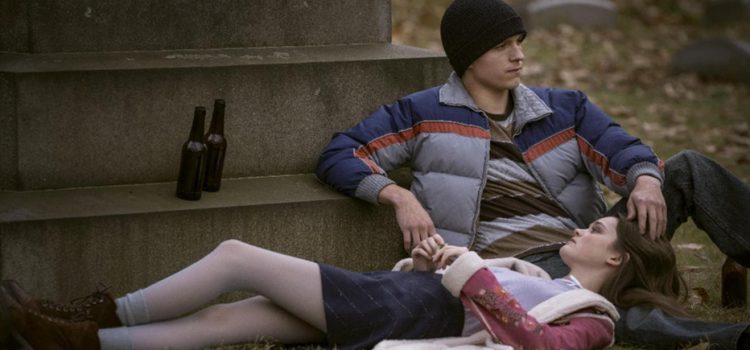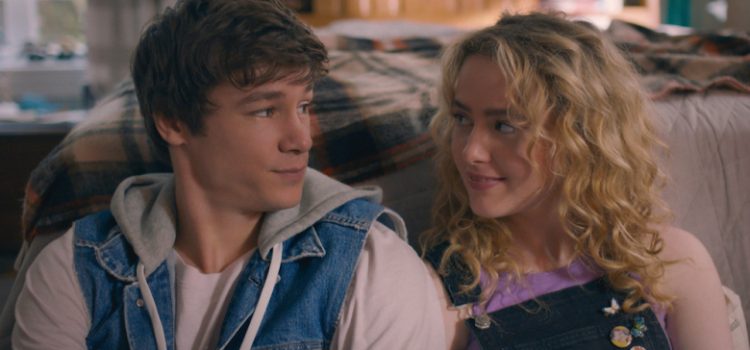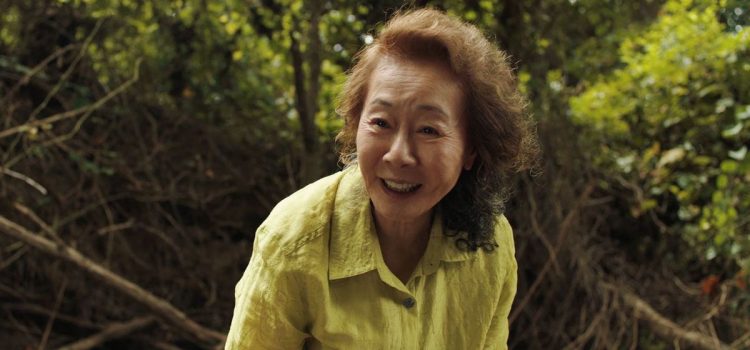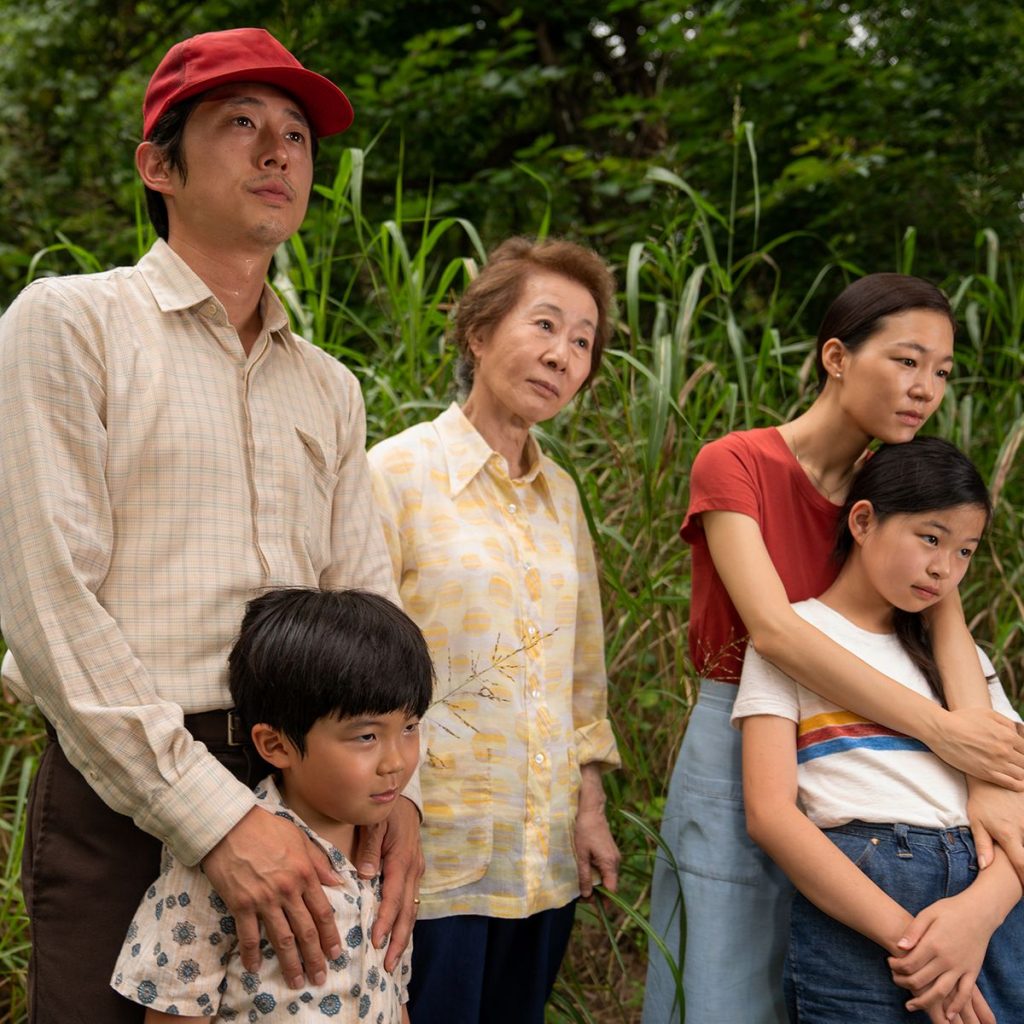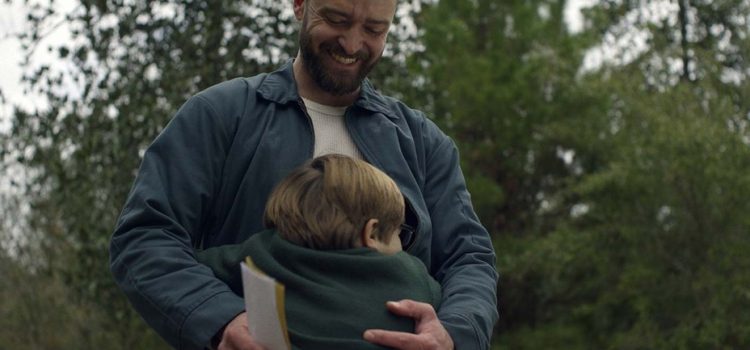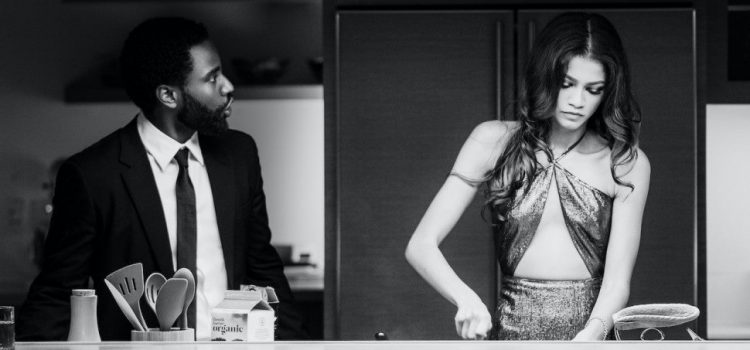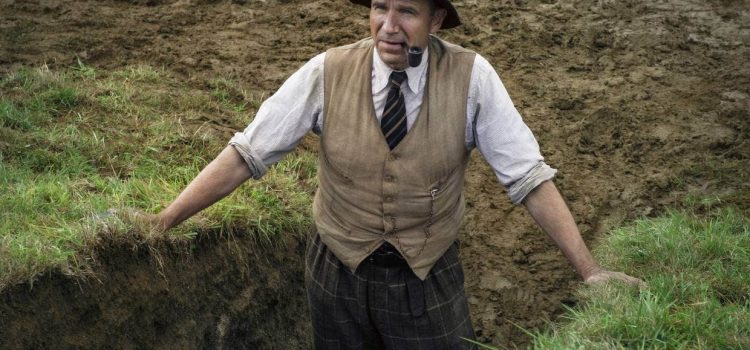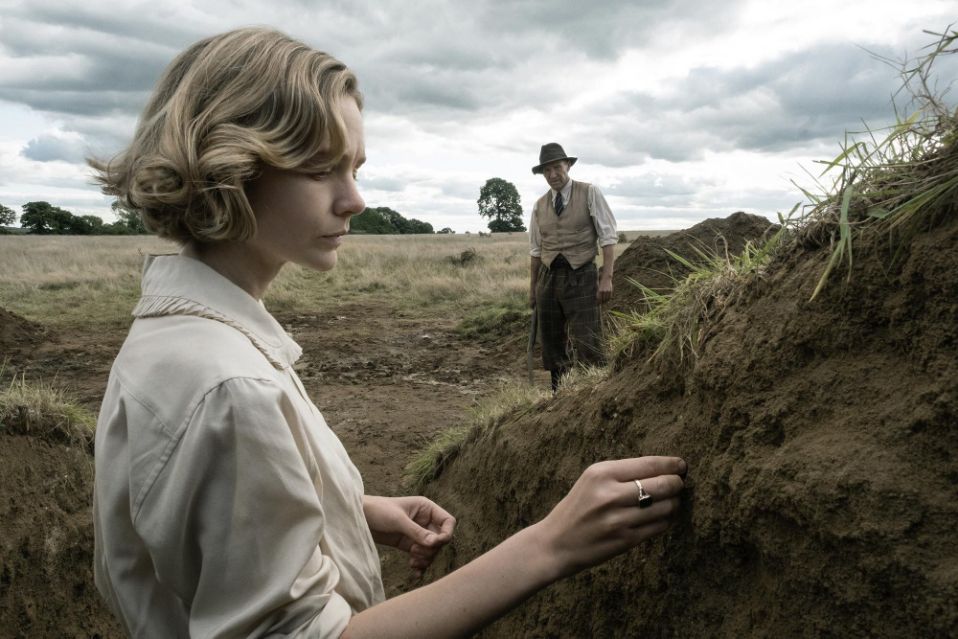By Lynn Venhaus
All grown up now, Tom Holland, the current movie action hero Spider-Man, tackles the troubled title character in “Cherry.”
It is a fierce performance and challenging role for the likable actor, who is the main reason to watch this undisciplined misfire from the Russo Brothers, gods of the Marvel Cinematic Universe for their work on “The Avengers” series.
But even Holland’s monumental efforts cannot save this generic story from itself. He does the heavy lifting, but the dark material is as airless as his blacked-out home during drug binges. The romance is run-of-the-mill – eventually two co-dependent junkies – and heroin addict stories are a dime a dozen in movies.
Based on Nico Walker’s 2018 semi-autographical book, which he wrote in federal prison while serving time for bank robberies to feed his drug addiction, the adaptation takes a literary approach by dividing his life story (35 years!) into chapters.
They are marked by title cards and Holland serves as the straight-shooting narrator who breaks the fourth wall and is candid about the sordid details.
The 336-page book was adapted by screenwriters Jessica Goldberg and Angela Russo-Otstot into a 2-hour, 20-minute movie that could have benefitted from better editing. The book was praised for coming out during the opioid epidemic.
The film wants to be an epic journey, but doesn’t set itself apart in any way, except for some stylized shots, and the characters lack appeal to sustain any momentum.
The dope life – high, strung out, needing drugs, scoring drugs, drifting through life in a haze – drags out the inevitable narrative. Not sure how many times we need to see addicts vomiting — but have at it.
The story begins in suburban Cleveland. His younger man phase is as generic as possible – partying, trying to find purpose, falling in love. He is an aimless college dropout who joins the Army after his girlfriend breaks up with him. However, he reunites with Emily (Ciara Bravo), and they marry before he goes to boot camp. At 19, he is sent to Iraq and the story turns very dark. He is forever traumatized by his medic duties and personal tragedies.
Cherry is not an interesting character until his combat experience in the fiery hell of Iraq makes him grow up fast.
Joe and Anthony Russo set up the “War is Hell” message well – after all, they are good at the male camaraderie and action sequences.
Upon his return to Ohio, Cherry becomes a mess – sleepless, self-medicating and angry, he starts popping oxycontin, and things go from bad to worse. His wife, still looking very young, starts shooting heroin with him.
Walker was released early from prison in 2019, and the Ohio-born Russo Brothers began their movie journey in 2020.
For an unlikable character, Holland impressively shows a genuine range of emotions, displaying how much he can stretch from saving the world devotion.
Since 2016, he has played Peter Parker/Spider-Man in Marvel’s Avenger series and his own spin-offs, starting with “Captain America: Civil War.”
The movie’s hefty supporting cast includes an impressive turn by Jack Wahlberg as Army buddy Jimenez, but there are a lot of characters who scream here – drill sergeants, scumbag low-life friends and upset girlfriends.
The point is? War is hell and drugs are bad? Don’t we already know this? Tell us a new version by illuminating rehabilitation after frittering most of your life away.
Will people walk away with fresh insight or just walk away?
“Cherry” is a crime drama directed by Anthony and Joe Russo, based on Nico Walker’s 2018 novel. Starring Tom Holland, Ciara Bravo, Jack Reynor, Michael Gandolfini and Jack Wahlberg, it is rated R for graphic drug abuse, disturbing and violent images, pervasive language and sexual content. In theatres Feb. 26 and on Apple + TV on March 12.

Lynn (Zipfel) Venhaus has had a continuous byline in St. Louis metro region publications since 1978. She writes features and news for Belleville News-Democrat and contributes to St. Louis magazine and other publications.
She is a Rotten Tomatoes-approved film critic, currently reviews films for Webster-Kirkwood Times and KTRS Radio, covers entertainment for PopLifeSTL.com and co-hosts podcast PopLifeSTL.com…Presents.
She is a member of Critics Choice Association, where she serves on the women’s and marketing committees; Alliance of Women Film Journalists; and on the board of the St. Louis Film Critics Association. She is a founding and board member of the St. Louis Theater Circle.
She is retired from teaching journalism/media as an adjunct college instructor.

